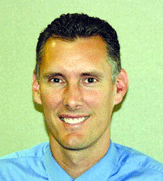By: Dr. John Spence
Medical Myths Debunked
The next several installments focus on issues that are commonly misunderstood by the general population. Sometimes popular misconceptions surrounding a particular ailment are a byproduct of old wife’s tales or media error. Regardless, issues such as sleep hygiene, arthritis and hypercholesterolemia are extremely common and deserve some discussion. I have started the ball rolling this week by tackling the topic of sleep – I don’t think I’ve met too many people who claim to sleep well on a regular basis or couldn’t stand to get a few more hours of shuteye here and there.
Sleep:
It has been estimated that 74 million Americans experience some form of sleep disorder. Adequate sleep is a priority – skimping on sleep typically does not solve workload issues and ultimately may impair productivity. We have all heard stories about how famous intellectuals like Benjamin Franklin or Thomas Jefferson only required four hours of sleep per night. The truth is that most people require seven to nine hours per night to function at an optimal level. Task performance suffers exponentially as sleep intervals incrementally decrease.
One myth that surrounds sleep hygiene is that teenagers need the same amounts as their adult counterparts. Another variation on this is that teenagers are inherently lazy and sleep all the time. The reality is that teens may physiologically require 9 ½ to 10 hours of sleep each night. Teens tend to become sleep deprived by going to bed late and getting up early for school. They try to make up for sleep deprivation during the week by catching up on the weekends and sleeping until 1 pm. This rarely works and may lead to chronic sleeping problems, not to mention potentially impaired thinking and school performance.
Many individuals think that snoring is more nuisance than a true problem. We know that, in fact, it may be a sign of sleep apnea which has been associated with heart disease, stroke and hypertension. Sleep apnea has been discussed in previous articles, but may be manifested by snoring, daytime sleepiness and general fatigue, morning headaches and changes in personality (i.e. irritability). A recent 14 year study investigating moderate to severe sleep apnea showed a mortality rate of 33% compared with 7.7% mortality in the group without sleep apnea. Put another way, sleep apnea has the same effect on mortality as getting 18 years older. I recognize that no one really wants a sleep study nor cares to sleep with a cumbersome, potentially uncomfortable CPAP mask and machine, but I’m quite sure no one wants to die earlier than necessary! Get checked out if you think you’re at risk!
Do you have any medical questions or concerns that you would like addressed? You can contact Dr. Spence by email at panhandledailydose@hotmail.com or by mailing your question to Daily Dose, P.O. Box 6107, Marianna, FL 32446.
Subscribe to:
Post Comments (Atom)

No comments:
Post a Comment